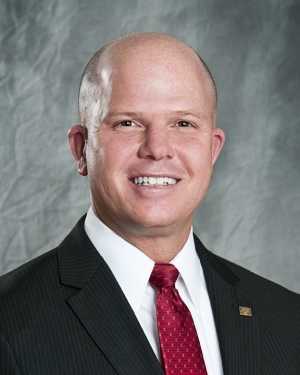Assessing the impact of private equity ownership on rural hospitals
by
Gus Iversen, Editor in Chief | January 25, 2024

Dr. David Schreiner
For better or worse, private equity investment is playing an increasingly central role in healthcare. Dr. David L. Schreiner president of Katherine Shaw Bethea Hospital in Dixon, IL, and author of Be the Best Part of Their Day: Supercharging Communication with Values-Driven Leadership, has had a front row seat to observe how private equity is impacting rural providers.
Having spent most of his life in small towns and working in small communities, Schreiner is a passionate advocate for rural hospitals. He sat down with HealthCare Business News to talk through some of the ways private equity investment is shaping care.
HCB News:Private equity investment is a huge trend in healthcare. How have your own experiences in healthcare been shaped by private equity?
Dr. David Schreiner: Our area has not had the introduction of private equity in acute-care hospitals. However, an outpatient imaging center has been added to our service area within the last year. This center disproportionately accepts paying patients, leaving Medicaid patients to area hospitals.
HCB News: What are some of the overlooked risks associated with private equity investment for healthcare providers?
DS: PE firms may be focused on short-term financial returns that could be misaligned with the health needs of the region. At KSB Hospital, we work through three-year strategic plans that evaluate the needs of the population we serve and adjust our business plans accordingly. If PE firms aggressively seek high margins for their investors, this could come through decreased staffing levels, resulting in additional adverse hospital events, such as those described in the article. If PE ownership results in the closing of service lines (like obstetrics or inpatient behavioral health) or even the merger of facilities, this logically increases travel times for patients and extends the time to seek crucial services. Think of the “golden hour” from the onset of a cardiac event or stroke. If patients have to travel further, crucial minutes are lost.
A focus by PE firms on efficiency and cost-cutting may lead to staff reductions and increased workloads for those team members left behind, potentially affecting the quality of care. Loss of talent in our organizations during the current war for talent is disruptive to patient care and might lead to a downward spiral in a facility’s ability to offer a wide-range of services.
HCB News: Advocates for private equity investment often point to the financial boost it can provide. Would you agree the financial backing can be a life saver for a facility on the verge of shutting down?
DS: Many rural hospitals, and ours is no exception, are struggling to maintain daily cash, and this limits our ability to recapitalize. We have gone from investing $7M annually on capital projects to a break-fix mentality. PE can provide an infusion of much-needed capital into our organizations.
HCB News: From a big picture, do we know *why* private equity investors are so drawn to healthcare?
DS: Rural populations represent a target demographic for PE firms. While trending older, these patients are loyal to their hospitals and doctors. The ability to cross-sell other products is enticing. PE firms may feel as if their proven business practices can “correct” the sins independent hospitals have made. With the renewed efficiency, a financially struggling rural hospital might prove to be a good PE play.
HCB News: For hospitals struggling financially, what are alternatives to private equity that may boost their viability?
DS: Partnerships with other NFPs and even geographically near competitors might be an alternative to PE investment and control for rural hospitals. Anything rural hospitals can do to spread costs among a greater service area, such as partnerships with home care providers, wound care centers, and urgent care clinics, might increase the financial viability of rural hospitals.
HCB News: Are there any other important aspects to private equity in healthcare we haven't discussed?
DS: The economic ripple effects of a community losing its rural hospital or undergoing a change of ownership can be extreme. Rural hospitals are often the largest employer in their community, and when hospitals close or downsize, including losing jobs, the economic downturn for the entire community is significant. A prime example of a community losing its hospital and the subsequent impact on the area can be seen in Fr. Scott, Kansas.
The current reimbursement model for independent “tweener” hospitals, defined as those systems bigger than critical access hospitals and smaller than academic medical centers, is unsustainable. Federal and State elected officials need to reinvent how health care is paid for in smaller, remote communities.
|
|
|
You Must Be Logged In To Post A Comment
|
